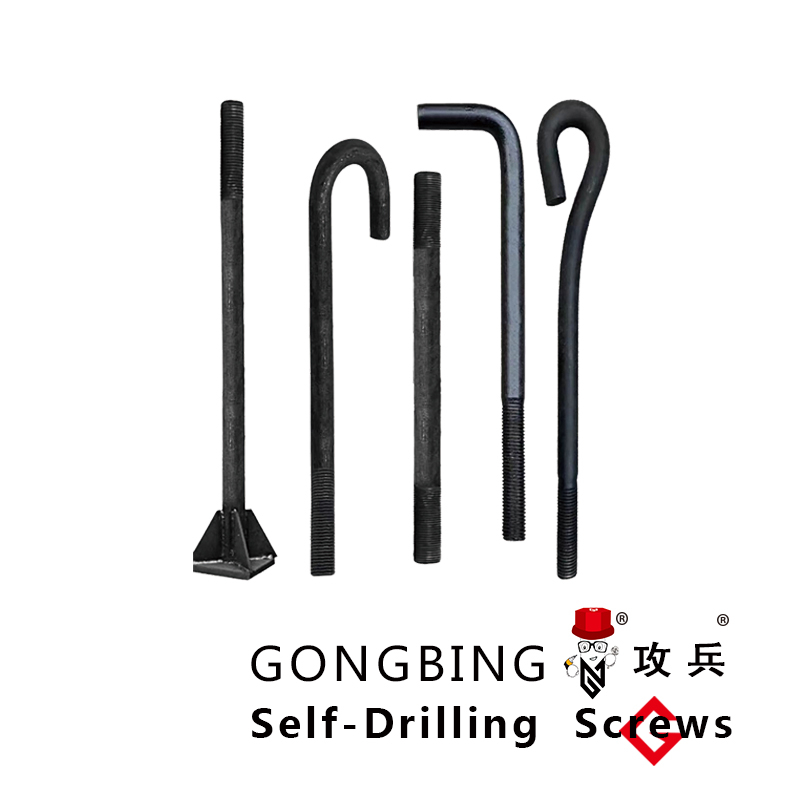m24 chemical anchor bolts
Understanding M24 Chemical Anchor Bolts A Comprehensive Guide
In the realm of construction and engineering, the choice of anchoring systems plays a pivotal role in ensuring structural integrity and safety. Among the various types of anchors available, M24 chemical anchor bolts have gained considerable attention for their versatility and strength. This article delves into the features, applications, installation processes, and advantages of M24 chemical anchor bolts.
What Are M24 Chemical Anchor Bolts?
Chemical anchor bolts are a type of anchor that utilizes a chemical adhesive to bond the bolt to the substrate, providing superior load-bearing capability compared to traditional mechanical anchors. The M24 designation refers to the metric size of the bolt, where M stands for metric and 24 denotes the nominal diameter of the bolt in millimeters. These bolts are typically constructed from high-strength steel and are designed to be used in conjunction with a specific type of chemical resin or adhesive.
Applications of M24 Chemical Anchor Bolts
M24 chemical anchor bolts are widely used in various applications, including but not limited to
1. Concrete Structures These anchors are ideal for securing machinery, structural components, and safety barriers in concrete environments.
2. Infrastructure Projects M24 anchors are commonly used in bridge constructions, tunnels, and other infrastructure projects where high load capacity and durability are essential.
3. Industrial Installations In factories and warehouses, these bolts anchor racks, shelves, and heavy equipment, ensuring stability and safety.
4. Renovations and Retrofitting When strengthening existing structures, chemical anchor bolts provide a modern solution that accommodates increased loads without compromising the original design.
Installation Process
The installation of M24 chemical anchor bolts involves several critical steps
1. Preparation The substrate must be clean and free of any debris, grease, or dust. This ensures optimal adhesion of the chemical resin.
m24 chemical anchor bolts

3. Cleaning the Hole It is essential to clean the drilled hole using a brush and compressed air to remove any dust or particles. This step is crucial for the effective bonding of the adhesive.
4. Mixing the Resin Chemical resins typically come in two-part systems that require mixing before application. Follow the manufacturer's instructions for proper mixing ratios.
5. Injecting the Resin The mixed resin is injected into the drilled hole, filling it adequately to ensure thorough bonding.
6. Inserting the Bolt After injecting the resin, the M24 anchor bolt is inserted into the hole and torqued to the specified load. The bolt should be turned gently to avoid stirring the resin excessively, which may affect its bonding strength.
7. Curing Time It is crucial to allow the resin to cure fully as per the manufacturer's recommendations before applying any load to the anchor. Curing times can vary depending on the product and environmental conditions.
Advantages of M24 Chemical Anchor Bolts
The choice of M24 chemical anchor bolts offers several advantages
1. High Load Capacity These anchors can support significant loads, making them suitable for heavy-duty applications.
2. Resistance to Environmental Factors M24 chemical anchors are often formulated to resist corrosion, moisture, and temperature fluctuations, ensuring longevity, even in harsh conditions.
3. Versatility They can be used in various materials, including both solid and hollow substrates, adding to their adaptability for different projects.
4. Minimal Expansion Forces Unlike mechanical anchors, which may exert expansion forces that can compromise the integrity of the substrate, chemical anchors bond securely without such effects.
5. Reduced Vibration Sensitivity The chemical bond provides better resistance to vibrations and dynamic loads, making them excellent for industrial applications.
Conclusion
M24 chemical anchor bolts represent a crucial component in modern construction and engineering practices. Their robust design, coupled with the high load capacities provided by chemical bonding, makes them an excellent choice for various applications. Proper installation and adherence to manufacturer guidelines are essential for maximizing their effectiveness and ensuring structural safety. As construction technologies advance, the relevance and utility of chemical anchor systems like the M24 will continue to grow, cementing their place in the future of construction.
-
Weatherproof Plastic Expansion Anchors for OutdoorNewsJun.06,2025
-
Sustainability in the Supply Chain: Eco-Friendly TEK Screws ProductionNewsJun.06,2025
-
Load-Bearing Capacity of External Insulation FixingsNewsJun.06,2025
-
Double Head Bolts: Enhancing Efficiency in Industrial MachineryNewsJun.06,2025
-
Corrosion Resistance in Chipboard Screws: Coatings for Wholesale DurabilityNewsJun.06,2025
-
Butterfly Toggle Bolts : Enhancing Structural ResilienceNewsJun.06,2025
